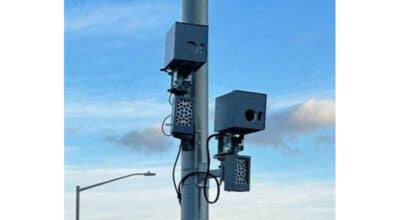Remember to stay safe during heat waves
Published 1:01 pm Saturday, July 9, 2016
The past few days have been excruciatingly hot and humid for our area. With the temperature being in the mid to upper 90s every day, and the heat index being a constant 103 degrees or higher, everyone has been trying their best to stay indoors when possible. However, we understand that not everyone has a job that is inside or has access to a building with a/c.
That being said, it is important to stay safe during these conditions in order to avoid experiencing any heat disorders. The National Weather Service has issued a set of safety rules that they encourage people follow to stay safe during the summer months.
In order to protect yourself, it is important to do the following:
• Avoid the heat. Stay out of the heat and, indoors as much as possible. Spend time in an air-conditioned space. Only two hours a day in an air-conditioned space can significantly reduce the risk of heat-related illness. Shopping malls offer relief if your home is not air-conditioned. If air conditioning is not available, stay on the lowest floor out of the sunshine. Remember, electric fans do not cool, they just blow hot air around.
• Dress for the heat. Wear loose-fitting clothes that cover as much skin as possible. Lightweight, light-colored clothing that reflects heat and sunlight and helps maintain normal body temperature. Protect your face and head by wearing a wide-brimmed hat. Avoid too much sunshine. Sunburn slows the skin’s ability to cool itself. Use a sunscreen lotion with a high SPF (sun protection factor) rating.
• Drink for the heat. Drink plenty of water and natural juices, even if you don’t feel thirsty. Even under moderately strenuous outdoor activity, the rate your body can absorb fluids is less than the rate it loses water due to perspiration. However, if you have epilepsy or heart, kidney or liver disease; are on fluid-restrictive diets; or have a problem with fluid retention should consult a doctor before increasing liquid intake.
• Do not drink in the heat. Avoid alcoholic beverages and beverages with caffeine, such as coffee, tea and cola. Alcohol and caffeine constrict blood vessels near the skin reducing the amount of heat the body can release. Although beer and alcohol beverages appear to satisfy thirst, they actually cause further body dehydration.
• Eat for the heat. Eat small meals more often. Avoid foods that are high in protein because they increase metabolic heat. Avoid using salt tablets, unless directed to do so by a physician.
• Living in the heat. Slow down. Reduce, eliminate, or reschedule strenuous activities such as running, biking and lawn care work when it heats up. The best times for such activities are during early morning and late evening hours. Take cool baths or showers and use cool, wet towels.
• Learn the symptoms of heat disorders and know how to give first aid.
They also encourage everyone to think about others, especially children and animals, by not leaving them in closed vehicles, and protecting children’s skin when outside by applying sunscreen.
Lastly, they suggest thinking about the environment by protecting the windows (hanging shades, drapies, etc.), conserving electricity, keeping lights turned down or off and avoid using the oven.
Sometimes experience a heat disorder is inevitable. If you or someone you know does experience one, it is important to know what to do to alleviate the symptoms.
To learn more about heat safety or the first aid of specific heat disorders, visit http://www.srh.noaa.gov/oun/?n=safety-summer-summersafety.




